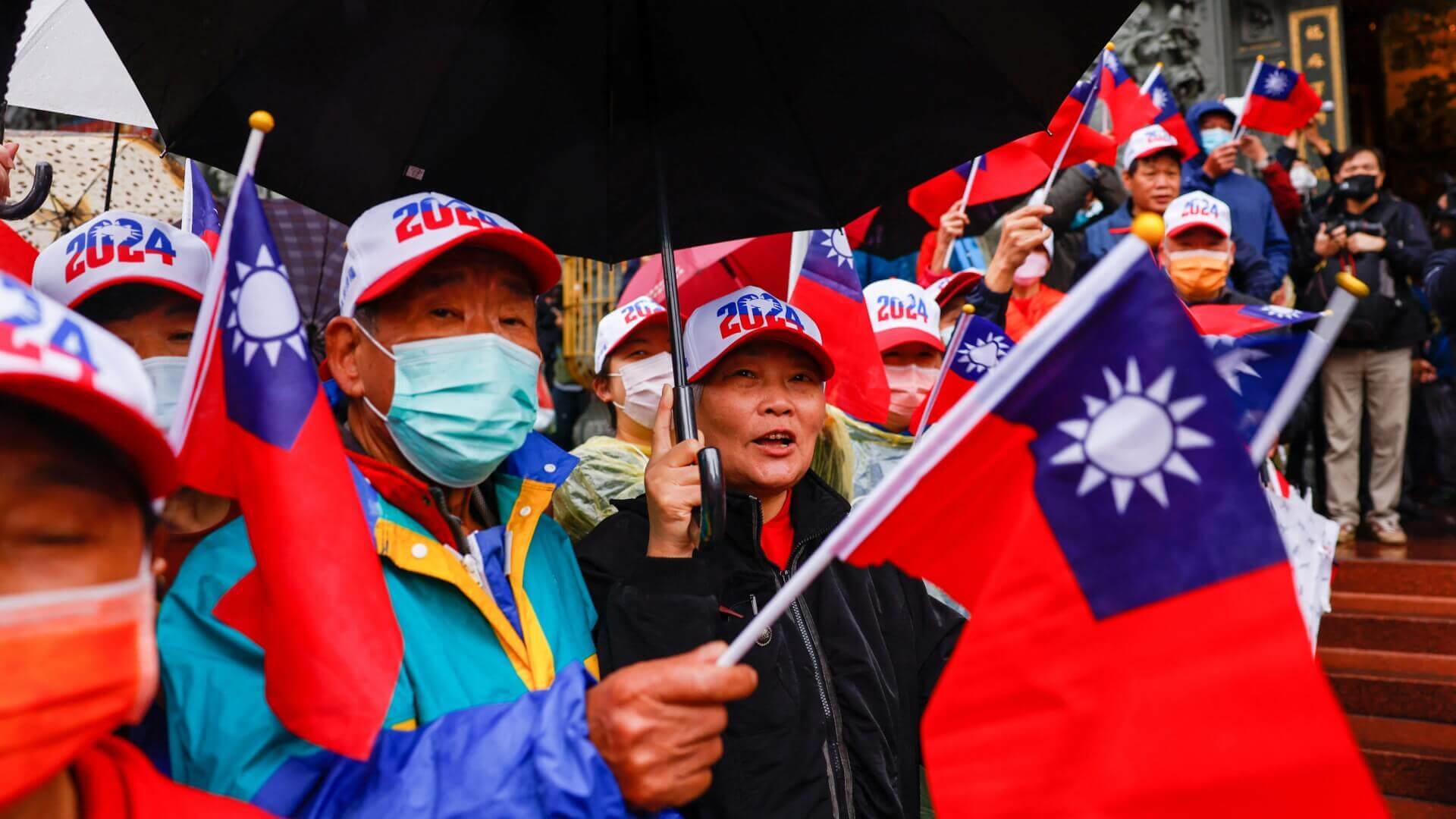In recent months, China has been ramping up pressure on Taiwan with even more gusto than it did previously. Push has come to shove as the self-governing island went to polls on Saturday and China continues to try to wield its influence on the island, by attempting to influence who rules the island, which it considers to be part of its own territory.
Recent Comments
In his New Year’s Eve address, Chinese President Xi Jinping reaffirmed his intention to reunite Taiwan with China.
“China will surely be reunified,” Xi said. “All Chinese on both sides of the Taiwan Strait should be bound by a common sense of purpose and share in the glory of the rejuvenation of the Chinese nation,” he added.
Similarly, Zhang Zhijun, the head of China’s Association for Relations Across the Taiwan Strait, a quasi-official body that overlooks the mainland’s ties with Taiwan, said in his New Year’s message that the Taiwanese faced an important choice in the election. “The two elections coming up in the Taiwan region are important choices between the prospects for peace and war, prosperity and decline,” Zhang noted. “Taiwan compatriots must stand on the right side of history, and make a correct choice to promote cross-strait relations back to the right track of peaceful development,” he added.
More recently, during a press briefing on Tuesday, Chinese Foreign Ministry spokesperson Mao Ning stressed that Taiwan is an inalienable part of China’s territory. Elections in the Taiwan region are China’s internal affairs. Questions on those elections are not related to China’s foreign affairs. I’d refer you to the Taiwan Affairs Office of the State Council regarding your question.
Why does Taiwan hold so much importance for China?
Historical Claim:
China’s interest in Taiwan stems from historical roots dating back to the Chinese Civil War (1927-1949). Since the Nationalists’ defeat, China has considered Taiwan a part of its territory based on historical claims of unity. The unresolved legacy of the civil war has contributed to a complex and contentious relationship.
One-China Policy:
The One-China policy is a foundational principle for Beijing’s engagement with Taiwan and the international community. China insists that there is only 'one China,' and both the mainland and Taiwan are part of it. Any move towards independence by Taiwan is met with strong opposition from China. For instance, when Taiwan’s leaders refuse to explicitly endorse the One-China principle, tensions escalate, leading to increased military drills and political pressure.
VIDEO: 🇹🇼 'We are a democracy': Taiwan gears up for election
— AFP News Agency (@AFP) January 10, 2024
Taiwan's voters go to the polls on January 13 to elect a new president, in a ballot which could determine Taipei's future ties with an increasingly aggressive China pic.twitter.com/881D7RJOLj
Nationalism:
The Taiwan issue plays a crucial role in bolstering nationalism within China. The Communist Party of China (CPC) uses the reunification narrative as a means to solidify its legitimacy. The CPC portrays the Taiwan question as a matter of national pride, emphasising China’s historical greatness and its leaders’ commitment to restoring the nation’s integrity. Events related to Taiwan, such as elections or policy shifts, are framed in a way that reinforces the CPC’s standing as the defender of China’s territorial integrity.
Strategic Importance:
Taiwan’s strategic importance lies in its geographical location. Control over Taiwan would provide China with a military advantage in the region. For example, Taiwan is strategically positioned along major maritime routes, and its control could allow China to project power and influence over the surrounding seas. Additionally, Taiwan’s proximity to potential conflict zones, such as the South China Sea, enhances its significance in the eyes of Chinese military planners.
Security Concerns:
Taiwan’s political alignment and military capabilities are critical security considerations for China. A government in Taiwan that leans towards independence or aligns with nations hostile to China could be perceived as a significant security threat. Thus, China closely monitors Taiwan’s defence policies, military exercises, and international partnerships to ensure they align with Beijing’s strategic interests. Any perceived deviation from these interests often leads to increased military posturing and diplomatic tensions.
Economic Interests:
Taiwan’s robust economy, particularly its advanced technology sector, makes it an economic powerhouse in the region. China seeks to integrate Taiwan into its economic sphere, leveraging economic ties for political influence. Examples include China’s efforts to encourage cross-strait economic cooperation, such as the Economic Cooperation Framework Agreement. Economic incentives are used as a tool to foster closer ties and align Taiwan’s economic policies with China’s broader goals. Taiwan’s finesse in the semiconductor industry is also of importance to Chinese interests, in light of Western export bans.
China’s multifaceted interest in Taiwan spans historical, political, strategic, and economic dimensions, reflecting a complex relationship shaped by decades of unresolved issues and evolving geopolitical dynamics.
It is, therefore, not surprising that China is using the opportune moment of the island nation’s presidential elections to swing the vote in favour of a pro-Beijing candidate, to further solidify its rule over the country.

